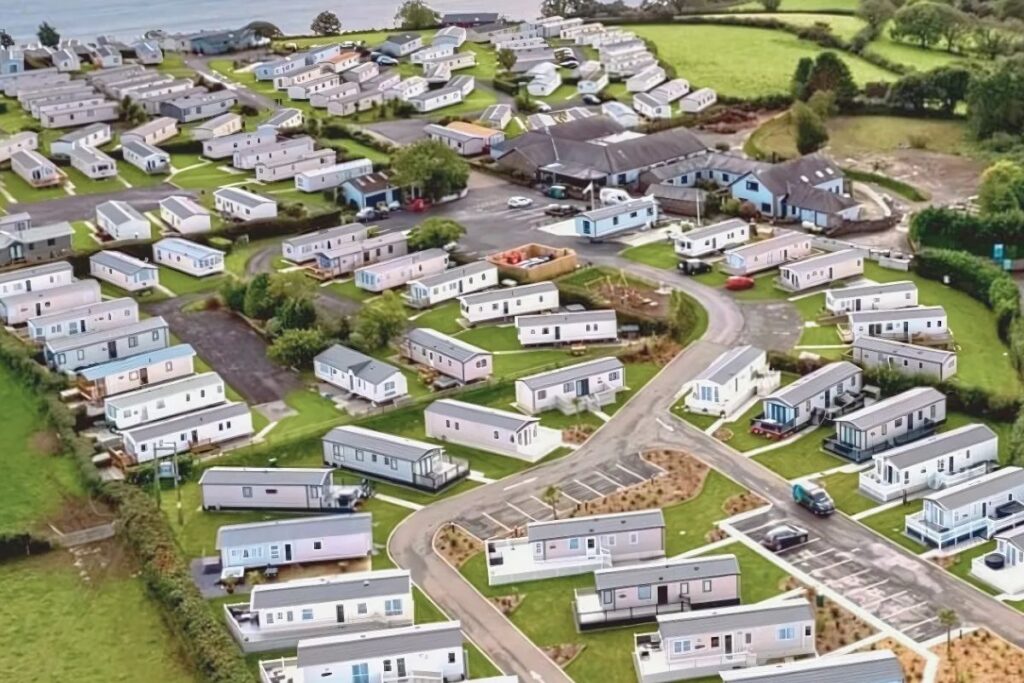My mate Mia rang me last week in a right state. She had just booked a week at Celtic Holiday Parks in Pembrokeshire for August, and it had cost her nearly a grand. Then her neighbour informed her that the company had gone bankrupt. “Will I lose every penny?” she asked, properly worried.
I had to do some digging to give her a straight answer. Turns out the situation with Celtic Holiday Parks administration is complicated but not as scary as it first sounds. So here’s what I discovered, and why Mia’s trip is still on.
What Actually Happened
Celtic Holiday Parks went into administration on 27 May 2025. That’s the official date Alistair Wardell and Richard Lewis of Grant Thornton were appointed as joint administrators. Essentially, they’re running the business now and looking for someone to buy it.
Now, administration is not the same thing as going bust altogether. It’s more akin to putting the company in intensive care whilst doctors work out how to save it. The business is still running, the staff is still employed, and, crucially to Mia, the bookings continue to be honoured.
I rang Grant Thornton myself to check this. They confirmed all existing bookings will go ahead as planned. The parks are still open, staff haven’t been laid off, and they’re actively looking for a buyer to keep everything running long-term.
The Parks That Are Affected
Celtic has three holiday parks in Pembrokeshire. There is Noble Court Holiday Park in Narberth, Meadow House Holiday Park in Amroth, and Croft Country Park in Reynalton near Kilgetty. Meanwhile, all three are business as usual while the administrators get to the bottom of things.
I visited Meadow House myself a few years ago. Great spot, just next to the beach, excellent upkeep. The glamping pods were awesome; the kids really enjoyed the pool. That is why this news was such a shock; these were not neglected spaces desperate for visitors.
The Company’s Background
So here’s the even more surprising part of this entire situation. The Celtic Holiday Parks enterprise was established in 2003 by Huw Pendleton and has been run as a real family business ever since. They have put more than £6 million into their sites over the past twenty years to create luxury lodges, static caravans, glamping pods, and traditional camping pitches.
Huw even won an award in 2022 for his ‘outstanding contribution to the UK tourism industry.’ These weren’t cowboys running dodgy caravan sites; they were respected operators who’d built a solid reputation.
The timing’s particularly rough. Holiday parks have been doing well since COVID, with more people choosing UK holidays. Celtic’s parks were award-winning and popular. So what went wrong?
Why Did Celtic Holiday Parks Enter Administration?
The administrators have not yet indicated what exactly was the root cause of the company’s financial woes, but based on what is happening across the industry, I can make an educated guess or two.
Everyone has been hit hard by rising costs. Energy bills for the running of holiday parks are astronomical: heated pools, lighting, and water systems. Insurance expenses have soared as well. There is then the issue of staff wages, maintenance, and all the other overheads that keep increasing.
Interest rates going up would make borrowing more expensive. Had Celtic had any loans or mortgages on these properties, the payments would have increased significantly over the past couple of years.
Competition’s fierce too. There are hundreds of holiday parks in Wales trying to attract the same customers. Maybe Celtic expanded too fast or took on too much debt during the good times.
Also read: Ex-Actor Zack Polanski Wins Green Party Leadership in a Landslide
What This Means for Holidaymakers
The good news for people like Mia is that their bookings are safe. All three parks remain open and have been operating normally. That deposit won’t vanish, they won’t cancel your holiday, and the facilities will still be in place on your arrival.
Caravan site and lodge owners can still have access to their property as normal. The administrators have said they want everything to continue running smoothly while they look to sell.
Staff have been kept on too, which is brilliant news. It takes experience to run these places, and keeping teams together shows the authorities are serious about maintaining standards.
The Search for a Buyer
Grant Thornton is seeking a buyer for the business. They are seeking a buyer to purchase the entire operation, which includes the three parks and the brand, and, if possible, to maintain all the staff, and so on.
This is not uncommonly the case in administrative cases. Frequently, the business is sold as a going concern, and the changes for customers are minimal. The new owner picks up right where the old one left off.
As popular as these parks are, and considering the amounts of money that have been spent on them, I would be very surprised if they did not find a buyer very quickly. Holiday parks in prime locations are valuable, particularly in Wales, where the tourism industry is thriving.
My Take on the Celtic Holiday Parks Situation
Looking into this further, I now believe Mia’s holiday is safe. The parks are too good and too popular to simply go away. Someone will purchase them, most likely sooner than later.
The Celtic Holiday Parks administration serves as an example of how even successful companies can encounter financial difficulties in challenging economic conditions. Rising costs, higher interest rates, and increased competition can squeeze profit margins until something breaks.
But this also demonstrates how administration can work, by keeping businesses going whilst it seeks new owners rather than simply pulling the plug the minute problems start.
If you have a booking with Celtic, I wouldn’t worry. Hold onto your booking confirmation, maybe consider getting travel insurance if you haven’t done so already, but plan on your holiday going ahead as normal.
For the staff and Huw Pendleton’s family, this must be devastating. Building a business over 22 years only to lose control of it is heartbreaking. But at least the parks they built will likely survive under new ownership.
Looking Forward
The holiday park industry in Wales is generally healthy. People still want UK holidays, families still love static caravans and glamping pods, and Pembrokeshire remains one of Britain’s top destinations.
Celtic’s parks are well-positioned assets in prime locations. With the right financial backing, there’s no reason they can’t return to profitability under new ownership.
For the time being, that message is as clear as can be: if you have booked with Celtic Holiday Parks, your holiday will still go ahead. The administrators are doing everything they can to keep operations running smoothly whilst finding a buyer who can secure the long-term future of these popular Welsh holiday destinations.

